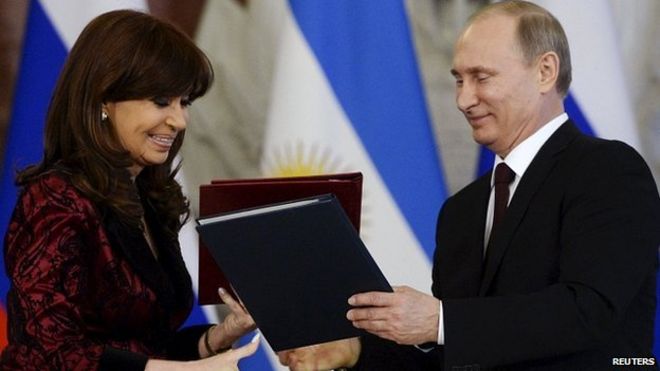EU charges Russia's Gazprom, alleging price gouging
(Reuters) - The European Union launched a legal attack on Gazprom on Wednesday, stoking tension with Moscow as it accused the Russian gas giant of overcharging buyers in Eastern Europe and hindering competition.
The Kremlin appeared to take a conciliatory tone, saying it hoped for compromise and an impartial stance from EU regulators.
The EU's new antitrust chief, Margrethe Vestager, who a week ago announced a similar market abuse prosecution against U.S. tech giant
Google, said state-controlled Gazprom was using its continued dominance in Moscow's old Soviet client states to hike prices by as much as 40 percent over the norm.
It could do so, she said, by insisting on contracts that bar customers selling on gas to others, notably across borders, which she described as a hindrance of free markets that broke EU law. It has also been an obstacle to EU efforts to supply Ukraine.
Another set of charges related to pressure put on Poland and Bulgaria to invest in pipelines according to priorities dictated by Gazprom.
Russia's biggest company, which saw an offer of a negotiated settlement rejected by Vestager's predecessor, dismissed all the accusations as "unfounded" and said it expected a resolution at a political level - though Vestager insisted the case was "not political", and in any case relations between President Vladimir Putin and the West are in deep freeze over the Ukraine conflict.
"The era of Kremlin-backed political and economic blackmail draws to a close," Lithuanian President Dalia Grybauskaite told Reuters in welcoming charges which EU officials said were based on evidence going back to when the eight countries affected joined the bloc, most of them in 2004.
Russian Foreign Minister Sergei Lavrov branded the move an "absolutely unacceptable" bid to apply EU rules retroactively to contracts signed long ago by Gazprom, which supplies about 30 percent of the gas used in the 28-nation bloc.
A formal inquiry was launched in September 2012 though, as in the Google case which had been meandering in Brussels for twice as long, Vestager has dramatically moved to a prosecution phase less than six months after taking over her job.
From beyond the EU's borders, Ukraine's state-owned gas firm Naftogaz also hailed the move to free cross-border flows from Gazprom restrictions. Like others in Moscow's former empire, Kiev accuses Putin of using Russian energy, and the Soviet-era infrastructure that carries it, to crimp its independence.
FINE OR SETTLEMENT
Gazprom has 12 weeks to respond to the charges and Vestager stressed that a negotiated settlement, under which it would amend its practices, was still possible. Without a deal, she has the power to fine companies up to 10 percent of their annual sales - a potential penalty in Gazprom's case of $10 billion.
"Gazprom is dominant in all these markets," Vestager, a Danish former economy minister, told a news conference. "Our preliminary view alleges that Gazprom is abusing this position."
"Gazprom has been able to charge higher prices in some countries without fearing that ... gas would flow in from where prices were lower," she said of contracts with the three ex-Soviet Baltic states, Poland and Bulgaria.
The broader charges on hindering cross-border sales also affect Hungary, Slovakia and the Czech Republic.




